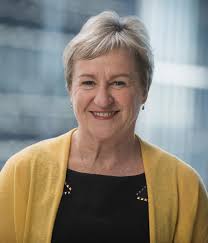NSW government agencies are “highly unlikely” to meet a policy commitment to cut expenditure on consultants, the state’s auditor general says.

Auditor Margaret Crawford looked at how ten agencies including Treasury, DCJ, Customer Service, Education, DPE, DPC, Regional NSW, Infrastructure NSW, Sydney Metro and TfNSW procured, managed and reported on their use of consultants.
The findings weren’t great, with her report concluding the agencies investigated didn’t have a strategic approach about when and how to use consultants, resulting in an ad-hoc approach.
That wasn’t all.
In 2019 the state government set a four-year goal of reducing consultancy expenses by 20 per cent each year, but Ms Crawford says it’s already $100 million over its target.
“Actual spending on consultants recorded in the first three years after the commitment was made was almost $100 million higher than the targets,” she said.
“Based on available data, it is highly unlikely that NSW government agencies will achieve the government’s 2019 policy commitment to reduce spending on consultants”
Spending concentrated on big four
NSW government agencies spent more than $1 billion on consultants over the last four years, with 27 per cent of that concentrated on the usual suspects: KPMG, Ernst & Young, PwC, and Deloitte.
The number of firms making up the top 50 per cent of expenditure also decreased from 11 to eight during this time.
Failure to use a wide and diverse pool of consultants is creating risks, Ms Crawford says.
“This concentration increases strategic risks, including over-reliance on a limited number of providers and potential reduction in the independence of advice,” she said.
The audit also found cases where procurement rules weren’t being complied with. This included contract variations exceeding thresholds, with agencies making changes to contracts that increased the amount paid in almost one in three contracts.
The largest increase through variations to an individual contract was $2.5 million.
Margaret Crawford
In five of these cases, the total amount of the contract increased by more than $500,000 compared to the amount initially agreed. The largest increase through variations to an individual contract was $2.5 million.
“Our review of a selection of consulting engagements from ten NSW government agencies indicates that these agencies do not procure and manage consultants effectively,” the audit concludes.
“We also found examples of non-compliance with procurement rules, including contract variations that exceeded procurement thresholds.”
Poor data and record keeping
The report found there was no single data source that accurately captured spending on consultants, and found many cases of inadequate record keeping.
Only three of the ten agencies could provide contracts for all of the consulting engagements selected for the audit. All up, agencies failed to provide contracts for almost a quarter of engagements.
“Gaps in its data collection and analysis mean monitoring of strategic risks is limited and it does not respond to agency non-compliance consistently,” Ms Crawford said.
“There are limitations in ability of various data sources to accurately record spending on consultants.
“These limitations include incomplete recording of all spending, and different definitions of consulting for accounting and financial reporting purposes.”
The report notes that more than $170 million of spending on consultants isn’t included in annual reports because some entities are exempt from annual reporting.
No improvement since 2018
A 2018 audit that looked at twelve government agencies found none were fully complying with NSW Procurement Board directions, and that the board wasn’t effective in overseeing and supporting agencies in their procurement of consultants.
Ms Crawford says there have been some improvements in the information available about spending on consultants since that audit.
“However, there is still no single data source that accurately captures all spending on consultants. This is despite our recommendations in 2018 that NSW Procurement improve the quality of information collected from agencies and suppliers, which NSW Procurement accepted.”
The latest report makes a number of recommendations, including that Procurement NSW improve the quality of data collected on consultants and develop a more strategic approach towards the use of consultants by the end of this year.





I think the big 4 have been so connected to government leadership that it is them that have become a proxy leadership themselves. The money is one concern but also the political influence is equally important to rein in
When as a Public servant of 27 years…now retired.
In working I had involvement with Consultants.
One situation, was with writing the Contract Processes, as the Department in restructure loss all its staff .
I was appointed due to my Contract knowledge to provide a Consultant, having to explain the detail steps of processes.
This Consultant with a bit of dressage presented my contract processes at a fee…thousands…yet I was a full time paid employee.